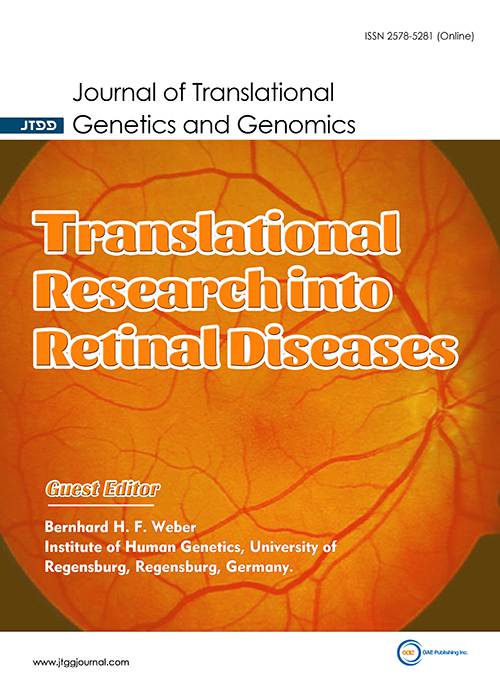
Topic: Translational Research into Retinal Diseases
A Special Issue of Journal of Translational Genetics and Genomics
ISSN 2578-5281 (Online)
Submission deadline: 31 Jul 2021
Guest Editor(s)
Special Issue Introduction
The translation of retinal research from bench to bedside is of utmost importance because of the urgent need to provide innovative treatments for individuals affected by the devastating blinding disorders. One promising approach is to tailor treatment options to the causal genetic insult and mode of inheritance. For example, while autosomal recessive inheritance can benefit from gene augmentation, a dominant negative disease may be better targeted by disrupting the disease-causing allele. Further, complex diseases which develop at the interface between genetic predisposition and environmental risk factors generally lack a straightforward therapeutic approach. The Special Issue on "Translational Research into Retinal Diseases" addresses a number of topics focused on the manifold opportunities and unique challenges in the field of neuro-retinal disease:
1.Methodological advances in iPSC-derived 2D/3D retinal cells
2.Methodological advances in animal models of retinal disease
3.Development of therapeutic concepts
4.Demonstration of potential treatment options
Submission Deadline
31 Jul 2021
Submission Information
For Author Instructions, please refer to https://www.oaepublish.com/jtgg/author_instructions
For Online Submission, please login at https://oaemesas.com/login?JournalId=jtgg&SpecialIssueId=622
Submission Deadline: 31 Jul 2021
Contacts: Jixiang Zhao, Assistant Editor, jixiang.zhao@jtggjournal.com





